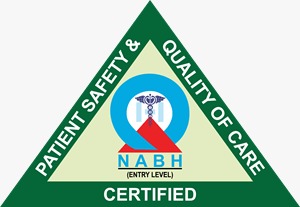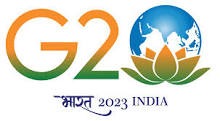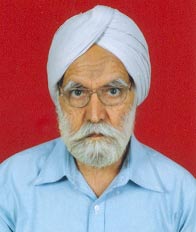Prof. Harbans Singh Randhawa
|
Director, 1991 to 1998 |
|
Harbans Singh Randhawa was born on October 5, 1933 in village BhangaliKalan, District Amritsar, Punjab. He got early education in rural schools before joining Khalsa College at Amritsar. He got B.Sc. Hons. degree from Punjab University in 1954.For his M.Sc. thesis(1956), he worked on the nutritional requirements of a fungal pathogen Colletotrichum capsici, the etiologic agent of die-back disease of chillies, under the tutelage of Prof. K.S. Thind, an eminent fungal taxonomist. Randhawa's association with Vallabhbhai Patel Chest Institute (VPCI) dates back to January 1957 when he joined as Assistant Research Officer (mycologist) in an ICMR-financed comprehensive research project on bagassosis conducted by the founder Director, the late Prof. Raman Viswanathan. Apart from his responsibility in the bagassosis studies, he was asked to organize a clinical mycology laboratory. In this assignment, he received considerable initial support and encouragement from the late Dr. Hans F. Smetana, a renowned visiting pathologist from the Armed Forces Institute of Pathology, Washington, USA, the late Lt. Col. A. J. H. de Monte, Asst. Director and Head, Department of Bacteriology subsequently renamed Microbiology, and Dr. H.D. Tandon, Head, Department of Pathology. During this early phase, histoplasmosis was the first respiratory and systemic mycosis to be taken up as a pilot study.Following the establishment of a Department of Medical Mycology in 1959, Randhawa was appointed on its faculty as a Junior Research Officer. While in service, he was awarded Ph. D. degree by the University of Delhi in 1964 for the thesis entitled, "Studies on the Pathogenic Fungus Flora of Man in India with special reference to GeophilicDermatophytes and Related Keratinophilic Fungi". In 1968, he was appointed as Senior Research Officer (later redesignated as Reader with introduction of U. G. C. pay scales), Professor of Medical Mycology in 1980 and Director in 1991. Dr. Randhawa was awarded several coveted international research fellowships, such as the Nuffield Foundation Fellowship (UK), 1963-64; Alexander von Humboldt Fellowship (Germany), 1970-71; Fulbright Fellowship (USA), 1980; etc. He has done collaborative research work with a number of leading international research centers such as Institute of Diseases of the Chest &Brompton Hospital, London (UK); Robert Koch Institute, Berlin (Germany); Centers for Disease Control (CDC), Atlanta (USA) and CentralbureauvoorSchimmelcultures, Baarn, Netherlands. He is recipient of a number of national and international awards/honors. Notable among these are the Shome Memorial Oration Award, Mycological Society of India, 1981; Warner-NCCP (I) Chest Oration Award, 1983; the ISHAM-Lucille Georg Award of the International Society for Human and Animal Mycology, bestowed on him in Adelaide, Australia, 1994, and the Raman Vishwanathan Memorial Oration, NCCP(I), 1996. Dr Randhawa served as Vice-President of the International Society for Human and Animal Mycology for 3 years (1985-88). He is a Fellow of the Indian National Science Academy, Founder Fellow, National College of Chest Physicians (India) and a Fellow of the Indian College of Allergy and Applied Immunology. For nearly four decades, he served on the Editorial Board of "Medical Mycology" (formerly "Sabouraudia"/ "Journal of Medical and Veterinary Mycology"), an official periodical of the International Society for Human and Animal Mycology. He was also an Editorial Advisory Board member/ Editor of the "Mycoses" (formerly "Mykosen"), a monthly periodical of Deutschsprachige Mykologiche Gesellschaft (German-speaking Mycological Society), and as an Editor of the "Indian Journal of Chest Diseases and Allied Sciences". Besides, he was a member of many important Advisory Committees such as WHO’s Review Group on International Nomenclature of Diseases (1980-81), International Union of Microbiological Societies 2000-2003, Infectious Disease Biology Task Force, Department of Biotechnology, Govt. of India, 2005-08, etc. Dr. Randhawa's academic career spanned over five and a half decades of dedicated service in VPCI. His research studies have focused on the etiopathogenesis of invasive and hypersensitivity diseases of the respiratory tract due to fungi and Actinomycetes. His major interest has been in epidemiology of respiratory and systemic mycoses. He has extensively collaborated with investigators in thoracic medicine, pathology, surgery, dermatology and otorhinolaryngology, etc. He is globally known for the discovery of Candida viswanathii and several other fungi of clinical interest. His other contributions (jointly with the Mycoses Group of VPCI) include the development and introduction of a number of widely used rapid laboratory diagnostic techniques as well as culture media now widely accepted, elucidation of the ecology of human pathogenic fungi, preparation and application of immunodiagnostic reagents for aspergillosis, blasmomycosis, histoplasmosis, etc. He and his co-workers unequivocally documented for the first time the endemic occurrence of blastomycosis in India. They were also the first to isolate the etiologic agent, Blastomyces dermatitidis from the visceral organs of bats (Rhinopoma hardwickei hardwickei), thus implicating these flying mammals as an additional host or a vector of this dimorphic pathogen. |












.png)
.png)



